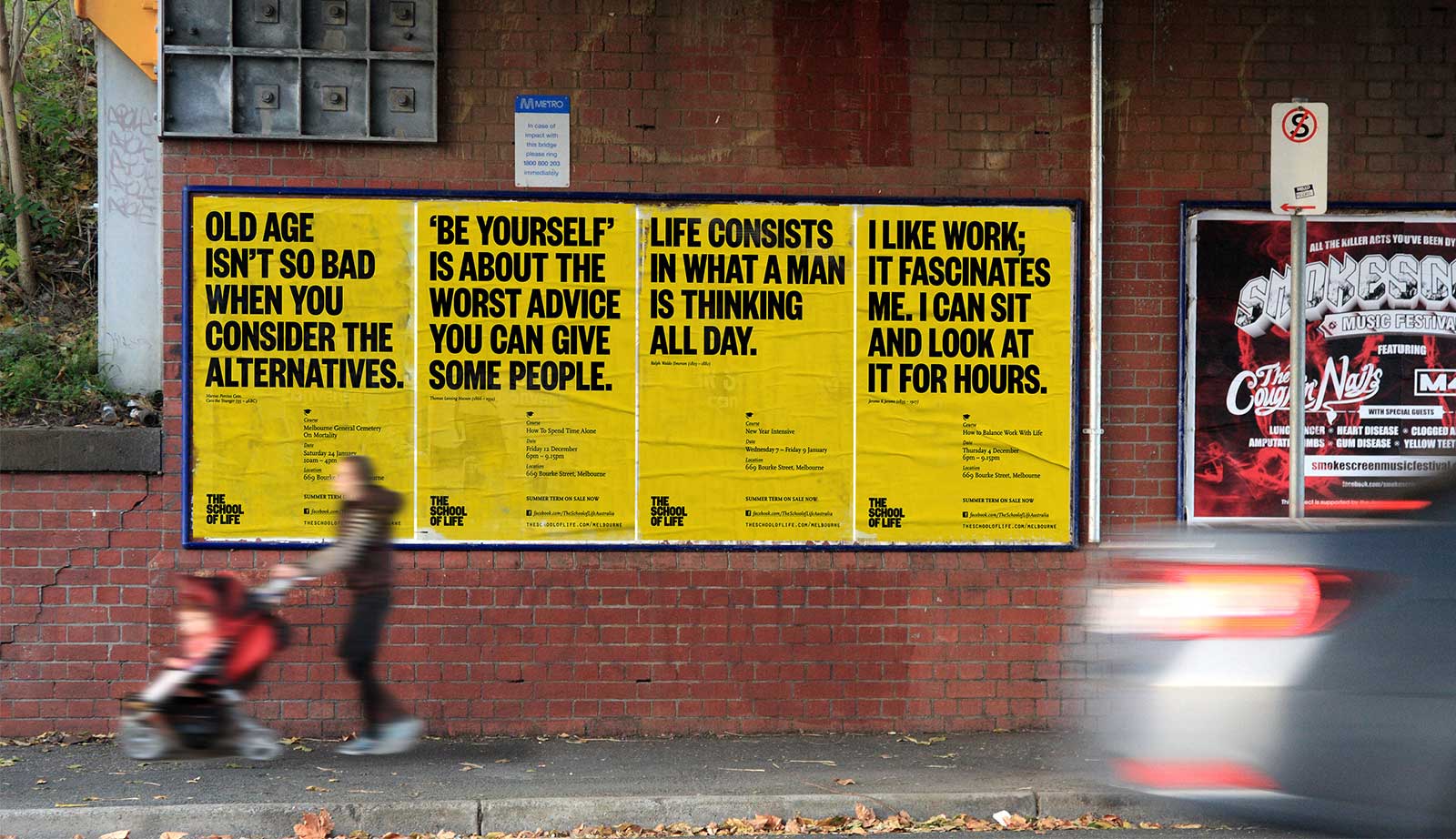How Can We Live Together?
Excerpts from "A School of Life for Athiests," an On Being conversation with Alain de Botton:
Humanity is still very, very young. We sort of think sometimes, oh, we've been around for ages, we've tried everything, we're at the end of time. No, we're still very much at the beginning. We're still working out how to live. We've only taken our first steps almost.
I think we're at a particular point in history where we can see that a lot more is going to come in the future. I fervently believe that, in the next 100 to 200 years, we will start to evolve ways of living a life where we don't believe, a non-believing life that is much more sophisticated than the non-believing life we currently have on offer at the moment.
At the moment, we're offering people either the choice of, [signing] up to one of these religions with all their doctrines and all their sometimes rather arduous demands on us, or you're outside. And outside is really outside.
It takes something like dying and marrying. In a secular world, we're having great difficulty knowing how to be married and how to die outside of religions. When people get married or die, they overwhelmingly flock back to religion because these religions know how to do it.
My view is this is just that we haven't sorted this problem out yet. It doesn't have to be the case. It's very possible that non-believers will learn how to do dying slightly better. We've done amazingly at the medical front, but on the more human front, we're beginners. We don't really know how to do this.
Similarly, with relationships, we praise romantic love and relationships to the skies, but do we really know how to make these things work? Not really. So a lot lies before us and, oddly, I think it's the study of the creativity of religions in addressing human needs that should be inspiring us not just to look backwards, but also to look forwards for how much still needs to be done.
All religions to some extent, are very interested in is rhetoric, convincing people through oratory, through speaking, through trying to discuss things. We slightly lost that. I mean, certainly the field that I come from intellectually, philosophy, now mumbles its truths to the world and therefore doesn't really have an audience.
Even though I often don't agree with the content of what the sermonizing tradition is saying in religions, the fact that they're out there speaking well, mobilizing people, of course, this is a fascinating project. I do believe in trying to reach people, reach an audience.
Many nominally religious people have slightly forgotten what good religion is supposed to be about. And in fact, many of the readers of my book who've been most sort of appreciative of it have said to me, oh, thank you for reminding me as a believer what the best bits of our religions are. Because, of course, as you rightly point out, there's so many ways to be religious and many of the most public ways of being religious that we're seeing at the moment are perhaps not optimal particularly in their intolerance.
Of course, tolerance is right at the heart of many religions, and tolerance does not mean agreeing with people. Sometimes it's a mistake, we believe that the tolerant person learns to agree or to see the other person's point of view. No, what tolerance really means is even though you don't get what the other person's saying at all, even though you may not even like them, you make an effort to tolerate, in other words, to make space for them and don't try and squash their opinions.
What we need to learn is how can we live together with people whose views we don't actually like very much? That's the far greater challenge, without attempting to convert them or dismissing them and denying their right to exist parallel to us. It's really about the stranger.
Christianity has had a lot of time for the stranger, the stranger that you welcome into the home, even though their beliefs may not be yours because, they too — wherever they come from, they too were made by God. Now even if you don't believe that they were made by God, there's some very important lesson in there.
It's basically saying we have a shared humanity even with people who don't seem to take the boxes that we have put in place in terms of recognizing what a good human is.
I think too often when we decide or when we feel I don't believe, that can often mean complete withdrawal from participation in, interest in, even knowledge of, religion. I think this is a tremendous mistake and impoverishes us intellectually, if you like, spiritually, practically because there's so much there that we can be inspired by, guided by. We understand ourselves better even as atheists by understanding what religious people have felt the need to address in their lives.
The secular world has still got many, many needs, but we sometimes think we've invented everything. We haven't. There's as much invention to do in the kind of soul space as there is in the technological space, and we need to be creative.
One of the ways in which we're going to be creative is by being fully aware of the constant creativity that religions have shown in addressing these very strange, slightly hard-to-discuss needs that we might call the needs of the soul, but that are there and they greet us at 3:00 a.m. or in relationships and we hit difficulties or when we're facing mortality or just when we're out and about under the stars.
We feel these needs and we need to address them. We need to find a structure for them.


